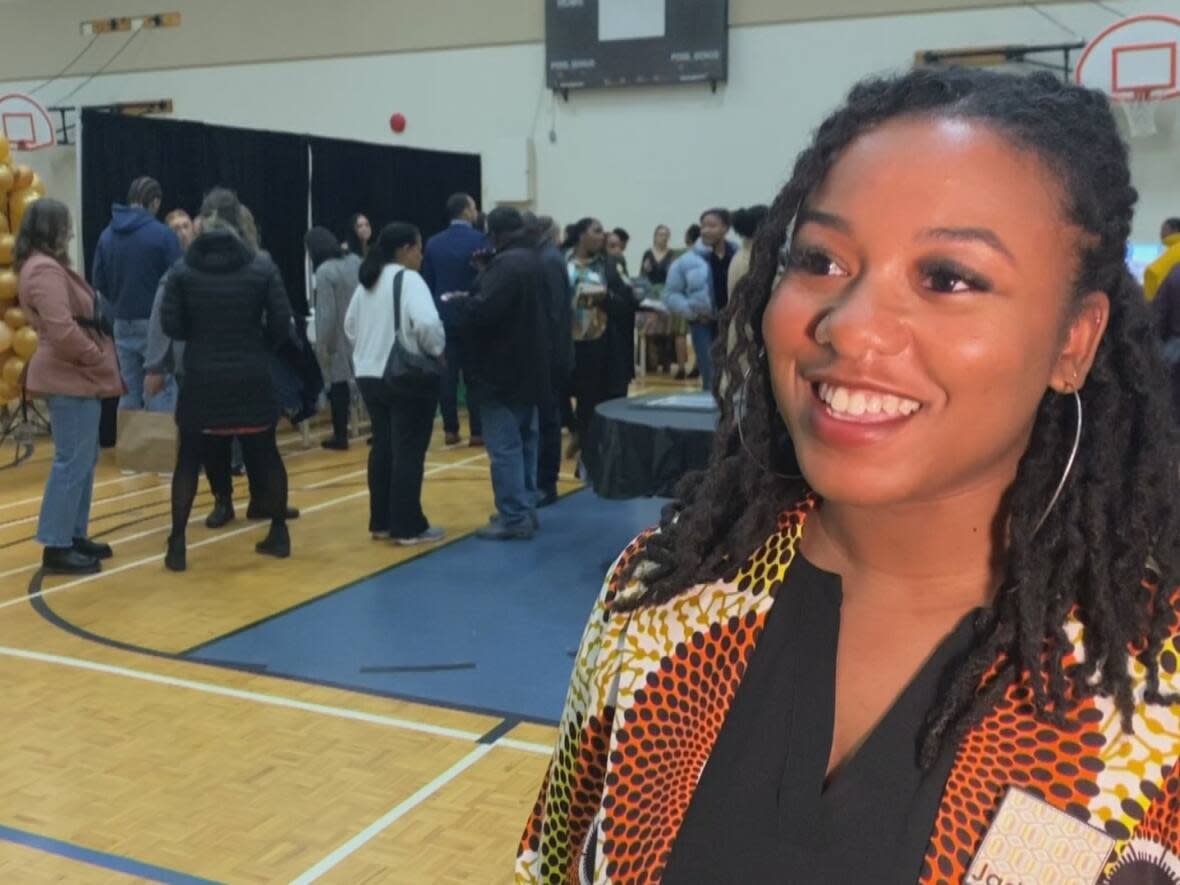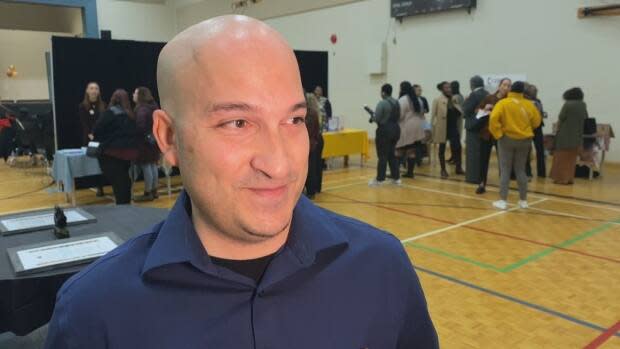1st cohort of Africentric early childhood educators graduate from NSCC

A new program in Nova Scotia designed to encourage more Black students to enter the field of early childhood education has celebrated its first graduating class.
Eighteen students graduated Tuesday from the Africentric early childhood education diploma program offered by the Nova Scotia Community College.
Jaden Dixon was among the graduates. She said graduating with people of similar backgrounds was extraordinary and empowering.
"Going into this field with the 17 other graduates, we're going to be that representation for those African Nova Scotian children," Dixon told CBC Radio's Mainstreet after the ceremony Tuesday.
"And not just African Nova Scotian children, just all children, because we embrace all cultures and religions and ethnicities."
The Africentric program was designed to let students be their authentic selves while giving them the opportunity to learn from respected Black educators.
Justin West, the faculty lead, said the program still covers the usual early childhood education curriculum — but through an Africentric lens that shapes anti-racist practices in the classroom.
"The program was designed for African Nova Scotian students so that we could be in a space where we didn't have to code-switch, we didn't have to think about how we're going to talk. We could just be," West told CBC Radio's Information Morning Nova Scotia.

The term code-switching refers to the way people may change their language and speech patterns while around certain groups of people.
Dixon, who grew up in a predominantly white community, said she noticed this in high school, as one of only seven Black students in her class of 400.
"There's that thing of code-switching where certain groups — friend groups, peer groups, whatever it may be — bring out different sides of you, and at the end of the day you're sitting there and you're like, 'Well, wait, who am I? I'm a blend of these two different people, but where do I kind of fit in that?'"
She said this experience made her feel like she was displaced, like she didn't belong.
"It takes a huge toll on your mental health and you just need to kind of feel seen and feel heard and know that you do belong in a classroom, in the workplace, in the world."
She said this Africentric program taught her just that, and she hopes to teach her young students the same.
"I think it would make a huge difference just for those children to feel seen, and getting them from that fundamental level and knowing that they do belong, it will completely change how they grow up and develop and feel about themselves in the world."
For more stories about the experiences of Black Canadians — from anti-Black racism to success stories within the Black community — check out Being Black in Canada, a CBC project Black Canadians can be proud of.

MORE TOP STORIES


